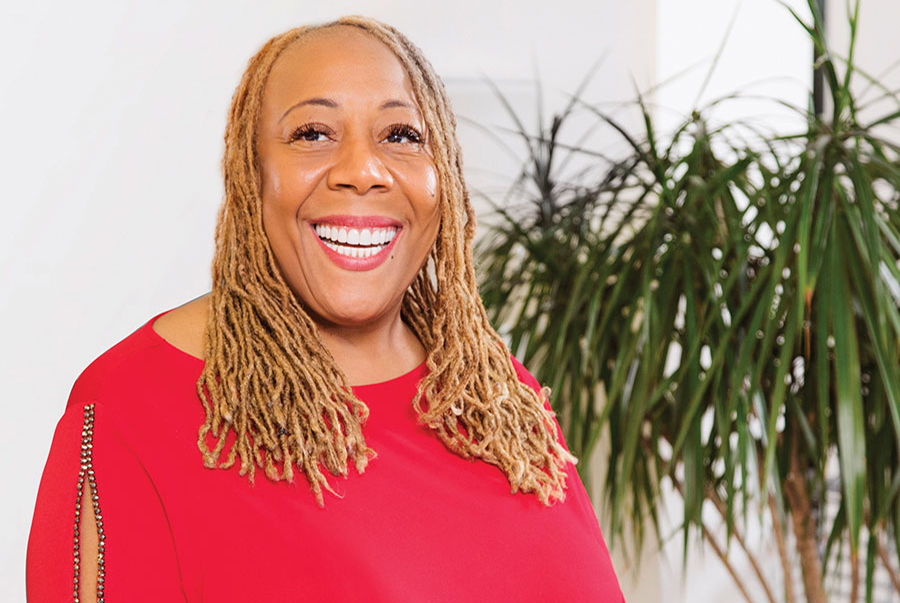Radio Icon and Stroke Survivor Advises Women: “Put Yourself First”

Photo credit: Nell Hoving
For 35 years, radio icon Patty Jackson has graced the Philadelphia airwaves with her trademark velvety voice. But look beyond her public persona and you’ll find a woman who is up to her neck juggling life’s many responsibilities, just like many American women. This balancing act came crashing down in 2015 when Jackson suffered a stroke.
“It happened two weeks after my mother died and a week after I turned 52,” says Jackson, a fixture on WDAS-FM. “I fell outside my house, but I brushed it off as being clumsy. Looking back, I realized I had been feeling a little ‘off’ for a while and I was experiencing weakness on my right side. Still, I pushed on because that’s what I do.”
Two more days went by before Jackson sought out medical care and received the news that she had had a stroke. It’s not an uncommon diagnosis—nearly 800,000 Americans have a stroke each year. It is especially prevalent in African Americans, who are twice as likely to have a stroke as Caucasians and who tend to be stricken earlier in life.
The irony of Jackson’s situation is that she was very familiar with stroke. Her mother had one years ago that left her permanently disabled. The warning signs that should have been a wakeup call for Jackson went unheeded. Like too many others in the same situation, she put her own well-being last.
“Life is busy, and you think it won’t happen to you,” explains Jackson, who spent nearly two months recovering from her stroke in the hospital and a rehabilitation center.
Today, Jackson is back on the air, but continues her recovery. She walks with a small limp and still works with a physical therapist a few times a week. She also has made several lifestyle changes to improve her health, including drinking more water, eating healthier and exercising regularly.
“I’m aware that I’m at risk for another stroke, so I have to watch my health,” she says. “Sometimes I just want to ‘go, go, go’ like I used to, but I have to stop and remind myself to set aside time to rest.”
Jackson’s stroke led her to realize the importance of making time for herself. The days of trying to be everything to everyone wasn’t sustainable.
“As women, we take on a lot and so much is expected of us,” Jackson says. “But we’re not superwomen, sometimes the cape has to come off. Sometimes it’s OK to say, ‘I can’t do it all.’ You have to realize that it’s important to take care of yourself first.”
For more information on ways you can Go Red this year, visit phillymag.com/go-red-2018.
This is a paid partnership between Go Red For Women and Philadelphia Magazine